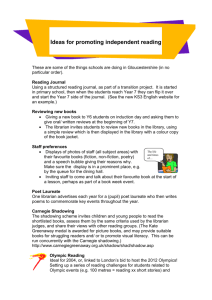Leading Librarians Essay
advertisement
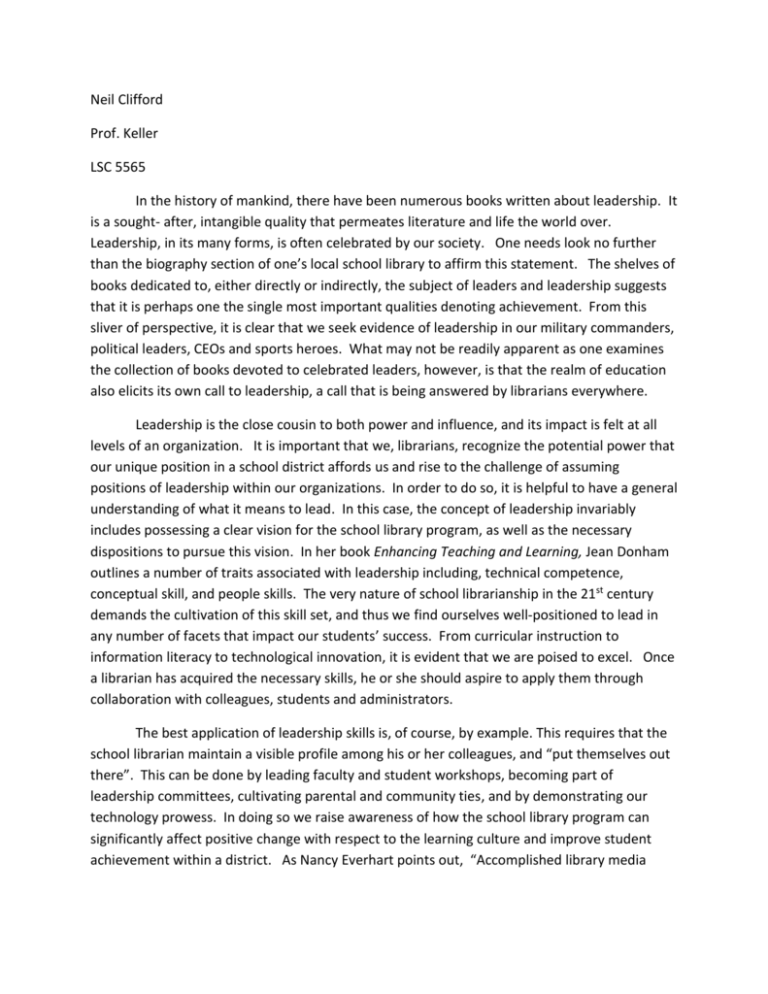
Neil Clifford Prof. Keller LSC 5565 In the history of mankind, there have been numerous books written about leadership. It is a sought- after, intangible quality that permeates literature and life the world over. Leadership, in its many forms, is often celebrated by our society. One needs look no further than the biography section of one’s local school library to affirm this statement. The shelves of books dedicated to, either directly or indirectly, the subject of leaders and leadership suggests that it is perhaps one the single most important qualities denoting achievement. From this sliver of perspective, it is clear that we seek evidence of leadership in our military commanders, political leaders, CEOs and sports heroes. What may not be readily apparent as one examines the collection of books devoted to celebrated leaders, however, is that the realm of education also elicits its own call to leadership, a call that is being answered by librarians everywhere. Leadership is the close cousin to both power and influence, and its impact is felt at all levels of an organization. It is important that we, librarians, recognize the potential power that our unique position in a school district affords us and rise to the challenge of assuming positions of leadership within our organizations. In order to do so, it is helpful to have a general understanding of what it means to lead. In this case, the concept of leadership invariably includes possessing a clear vision for the school library program, as well as the necessary dispositions to pursue this vision. In her book Enhancing Teaching and Learning, Jean Donham outlines a number of traits associated with leadership including, technical competence, conceptual skill, and people skills. The very nature of school librarianship in the 21st century demands the cultivation of this skill set, and thus we find ourselves well-positioned to lead in any number of facets that impact our students’ success. From curricular instruction to information literacy to technological innovation, it is evident that we are poised to excel. Once a librarian has acquired the necessary skills, he or she should aspire to apply them through collaboration with colleagues, students and administrators. The best application of leadership skills is, of course, by example. This requires that the school librarian maintain a visible profile among his or her colleagues, and “put themselves out there”. This can be done by leading faculty and student workshops, becoming part of leadership committees, cultivating parental and community ties, and by demonstrating our technology prowess. In doing so we raise awareness of how the school library program can significantly affect positive change with respect to the learning culture and improve student achievement within a district. As Nancy Everhart points out, “Accomplished library media specialists are instructional leaders who forge greater opportunities for learners”. The iron has never been hotter, folks. Finally, it is essential that every school librarian must recognize the need for advocacy if they are to be successful leaders in the current education climate. Collectively, librarians represent a powerful piece of today’s educational puzzle. It is no secret to those of us “in the know” that students benefit immeasurably from strong library media programs. However, we cannot allow ourselves to become complacent in this knowledge. Rather, we need to actively refine our repertoire of skills and be the impetus of innovation and change in the increasingly exciting world of education. . dedicated to leadership Thus, the to any number of situations and definitions, It is immediately apparent that Leaders may emerge from their dynamic work in the classroom, They may emerge in the form of curricular leaders


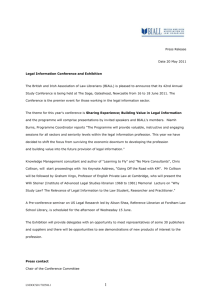

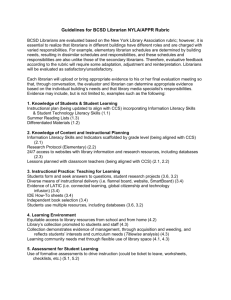


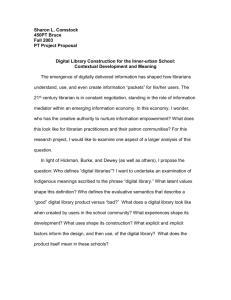
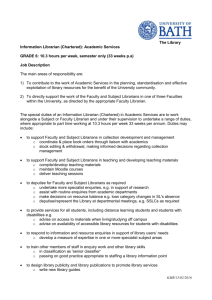
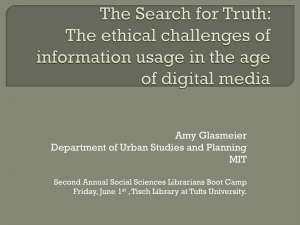
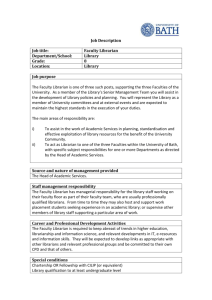


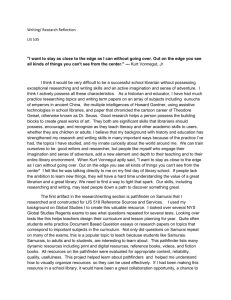

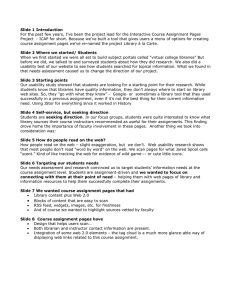

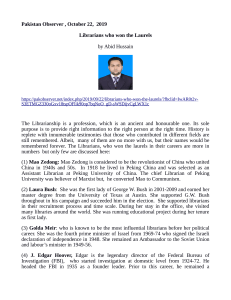
![Appendix F1: Full-Time Faculty/Adjunct Staffing Request(s) [Acct. Category 1000]](http://s2.studylib.net/store/data/011490980_1-b69ecfe680da9783e3a8b5b4e37131c4-300x300.png)

